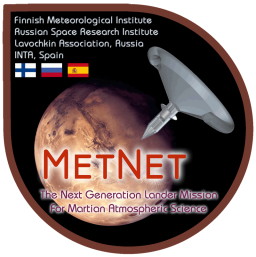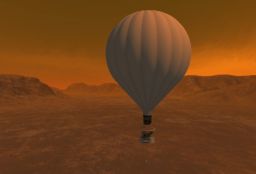Emily Lakdawalla • Sep 30, 2008
Doug Ellison at Europlanet 2008: Europlanet Wrap-up
All last week, Doug Ellison filed reports from the third European Planetary Science Congress, also known as Europlanet, taking place in Münster, Germany. Doug is the dictator-for-life of the online forum unmannedspaceflight.com.
This is Doug's final entry from the meeting. All of his entries are now wrapped up in one package on this page. Thanks, Doug! --ESL
Some of you may have noticed that my reports from Europlanet were perhaps a little thinner on pure science than last year. With the Division of Planetary Sciences conference not too far in the future [on October 10-15], many people were clearly holding their scientific cards close to their chests. One speaker was even bold enough to outright admit, mid-presentation, "I won't be showing you anything new." Other people who frequented the press office agreed that it wasn't a conference for revelation. Two things that I wanted to highlight but didn't get around to were the MetNet project, and the Titan Saturn System Mission (TSSM) mission design.
TSSM is what has evolved as the international version of the Titan Explorer, TANDEM and other flavors of next flagship mission involving the Saturn system. It's only fair to say that other outer planet flagship missions are available. The competition to TSSM comes in the form of an independent pair of spacecraft: a NASA one to orbit Europa, and an ESA one to orbit Ganymede. All week long, little side-references were made about one target or the other, but I do get a feeling that the consensus is for Titan.
That brings to a close my reporting for Europlanet. You can hear a little more of my Münster exploits on this week's Planetary Radio. However, I will admit that I was on a mission this time around, and that mission wasn't entirely to blog my fingers off.
At Europlanet last year, I was a science-conference rookie and was treading quite carefully, being careful not to offend any fellow Europeans. This year, a little more confident around people I had seen on the news after spaceflight events such as the Huygens landing or the flight of SMART-1, I was trying to make my message heard a little more. I won't pretend that I have been happy with how much outreach European scientists have been doing over the past few years. It's also naïve to think that without the Mars Exploration Rovers setting, and Cassini, New Horizons, and Phoenix following, a new standard for how to do this, we would have such high (and as yet unrequited) expectations of public outreach from European missions.
Having said all that, I have noticed a change over the last 12 months. I think we're already a long way from my trying to blog my way through the Rosetta Mars Flyby without Internet access, and without the science team taking the opportunity to take a few more pretty pictures. Now we have ESA regularly blogging key events (such as every Rosetta flyby since, and the recent Automated Transfer Vehicle spacecraft de-orbit). Key scientists are clearly beginning to understand that letting the public inside their missions is to be welcomed, not feared. I left Europlanet with the business card of a Venus Express scientist who said "Tell me what you need..." That was as surprising as it was exciting. He was astonished by Emily's work to get their PDS-released data and throw it online so people can access and enjoy it as easily as possible. Not everyone is onboard, but some are. They won't all come onboard unless they hear that we want them to, so if you're a European and you want to hear more about what your money is doing within ESA, write to your government's science minister (or equivalent) telling them that you support ESA, you support their activities in space science, and you would like to see more outreach, more openness and more interaction between the public and planetary science.
I'll close with my thanks to Emily for letting me borrow the blog for the week, Mat for letting the dictator-for-life onto the airwaves, and you readers for putting up with it all. Keep exploring -- you never know what we might find over the next hill.
The Time is Now.
As a Planetary Defender, you’re part of our mission to decrease the risk of Earth being hit by an asteroid or comet.
Donate Today

 Explore Worlds
Explore Worlds Find Life
Find Life Defend Earth
Defend Earth



